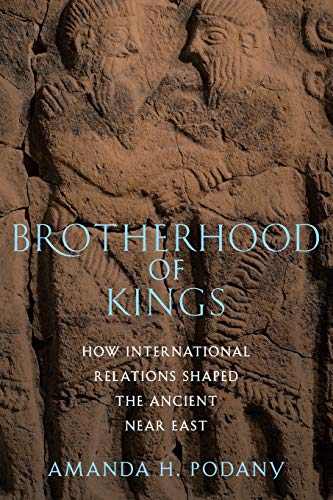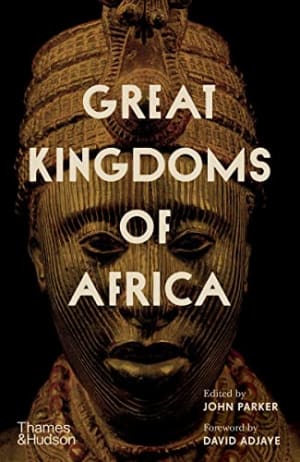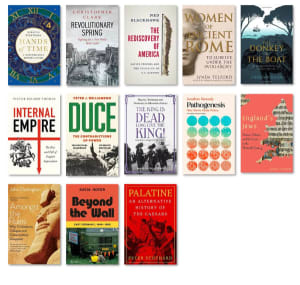How do you deal with a bully? This is a problem that most of us will have considered at some point in our lives. But what if your bully is the ruler of a superpower, directly controls an enormous army, employs lethal violence as a matter of course, and revels in his “strongman” image?
I’m talking of course about Amenhotep II, pharaoh of Egypt from 1427 to 1401 BCE.
Home is where the Ma'at is
Amanda Podany tells us what happened in Brotherhood of Kings, How Diplomatic Relations Shaped the Ancient Near East. Initially the Egyptian kingdom seems to have kept itself in a state of splendid isolation - there is almost no record of interaction with the Mesopotamian kingdoms before 1640 BCE. What was the point? With an abundance of food, stone and gold all that was needed was an occasional shopping trip to Byblos for timber and to Cyprus for some extra copper.1
So why risk contamination from the elemental forces of chaos and disorder at the edge of the universe? Better stay where you are and let the broad desert and the deep sea keep everyone else out.
The world turned upside down
But this peacefully disdainful attitude was brutally shattered by the Hyksos. Appearing out of nowhere in 1640 BCE these chariot riding, horse loving, master bowmen2 easily conquered the pedestrian Egyptian army, leaving the pharaohs with just half a kingdom and an urgent need to reconsider their pacifist xenophobia.
But after a hundred years of warfare and a successful reinvention as militarist xenophobes, the Egyptians were finally able to turn the tables, destroy the Hyksos capital in the Nile delta and eject the hated invaders from Egypt for good.
But what if the Hyksos were to come back? Or what if some other group was hanging around nearby waiting to attack?
Taking the war to the enemy
On the principle that the best form of defence is attack, the Egyptians regularly started sending armies into the Levant to install client kings and smash the place up a bit.
By the time of Amenhotep II the Egyptians had been fighting their “defensive” campaigns in Syria for about 80 years. And while you could say these expeditions were born of necessity, they seem to have been undertaken with real relish by Amenhotep, who boasted that:
He has gathered them [his enemies] all into his fist, his mace has crushed upon their heads.
Amenhotep II
And:
With joy of heart to his father, Amen, he slew with his own weapon the seven [rebellious] princes.
Amenhotep II
Finally:
His heart is satisfied when he sees them after he decapitated the troublemakers.
Amenhotep II
Amenhotep II launched two massive campaigns against the Mitanni empire, northern Mesopotamia's top dog. After the second campaign he proudly recorded that he had taken (among a long list other things) an incredible 101,128 prisoners.3
So we have an aggressive military leader who revels in personally chopping people up, posturing at the head of a well oiled military machine used to victory. Things were not looking good for the Near East. But there was one thing that Amenhotep hadn’t counted on...
A notable event!
The Mitannian secret weapon, according to Podany, was diplomacy. Just after Amenhotep II’s second looting and killing spree in Canaan, with his 101,128 captives still trudging to their new homes in the Egyptian empire, the Mitannian diplomats pounced.
The audaciousness was striking. As Amehotep himself remarked: the Mitannians came...
tribute on their backs, to seek the peace of His Majesty, desirous of his sweet breath of life. A notable event! [The like of this occurrence] had not been heard of since the time of the demigods: this land which knew not Egypt was supplicating the Good God!
Amenhotep II
“Seeking peace” Podany tells us “was not a phrase used with respect to vassals, and it is a telling sign of the new way in which these great kings were seeing one another - as partners in peace rather than as enemies in war.”
The diplomatic shopping list
The key point is that what was being proposed was an alliance based on equality. This custom of alliance had been operating in Mesopotamia for over 1,000 years by this point, and had a well worked out recipe:
- Regular exchange of clay tablet messages, sent by trusted and high ranking officials
- Which observed the correct salutations - “you are my brother and I am your brother”, hence the title of the book
- Accompanied by ostentatious gifts. For example horses, chariots, gold, textiles etc
- Including request for lavish gifts in return
- Topped of by marriage of your daughter (again involving significant present swapping)
Podany speculates that for the pharaoh the royal brides were a particular attraction, but that easy access to luxury goods that were not available in Egypt such as fine horses and beautiful lapis lazuli would also have been tempting.
Whatever the details, Amehotep II clearly now found peace more attractive than war. He never ventured outside Egypt again and spent the rest of his reign building magnificent temples and palaces, or at least getting other people to build them for him.
An equilibrium state
This system of peace that took root in Mesopotamia didn’t prevent war but it did lead to periods of remarkable interstate stability. In the three hundred or so years from Amenhotep’s conversion to the late bronze age collapse, it took an unusually belligerent leader to undermine the system. Most of the time the various kings were content to call each other brother, marry each others daughters, and try to wheedle just a bit more gold out of the Egyptian pharaoh for the very last time.
It is also notable that it is all based on self interest. There was no particular moral underpinning to the idea of international peace, it just suited the interests of the kings involved who could get what they wanted more easily and with less risk.
What is the book like to read?
I really enjoyed reading Brotherhood of Kings and found its focus on peace rather than war a refreshing new perspective on the Ancient World. And although I have zoomed-in on the story of Amenhotep II above, the book covers a much longer period than this, kicking off in 2300 BCE4 or thereabouts and taking us to the end of the bronze age in 1150 BCE.
This means we hear about the now more or less forgotten great kingdoms of the time such as Mitanni, mentioned above, and Ebla and Mari before this - as well as those that are more familiar to us such as the Babylonians and the Hittites.
Begging letters
No pre-knowledge is assumed by the author which was helpful for me as I had very little! (Although I had previously read and reviewed her excellent 2022 book Weavers, Scribes and Kings: A New History of the Ancient Near East.) Podany introduces us to the Near Eastern world as gently as possible with the help of some memorable and sometimes eccentric characters. For example: Tushratta, King of Mitanni who was pathetically desperate to get his hands on a solid gold statue of himself from his Egyptian “brother” king.
A lot of the fun of the book lies in hearing the words of the Kings themselves in their messages to each other. Here is Tushratta again, who was unusually affectionate in his letters:
Certainly there is this between us: we love (each other) very, very much, and between us let there be friendship
King Tushratta of Mitanni writing to pharaoh Amenhotep III of Egypt, 14th Century BCE
Drawbacks?
The only downside that I would pick out is that because the period is so much less well known than say the time of the ancient Greeks it’s just that bit harder for everything to sink in. That’s not to say that you need to take notes but you do need to keep your concentration as you read through.
Conclusion
This book is very highly recommended. Although the strategies for dealing with a royal bully in the bronze age may not work quite as well nowadays, there is still plenty of nourishing food for thought.
If you have even a passing interest in the ancient world or diplomacy in general I wouldn’t hesitate to get a copy.
As an aside I couldn’t figure out where Egypt sourced its tin - an essential ingredient for the bronze age. Most tin in the region seems to have been mined in what is now Afghanistan so perhaps this was also on the shopping list. ↩︎
All of these characteristics are disputed but I find them hard to shake due to having read River God at an impressionable age: the highly entertaining historical fiction romp by Wilbur Smith ↩︎
He is very precise about this but surely it is an exaggeration?? ↩︎
This diplomatic system seems to have been in place before the invention of writing in the Near East - with the earliest “diplomatic letter” so far discovered being dated at around 2340 BCE. The reason diplomacy is thought to have been invented before writing is because in this letter the diplomatic conventions are already well formed: referring to fellow kings as “brothers” and requesting luxury bits and bobs they couldn’t get hold of themselves. ↩︎
Book details
(back to top)- Title -
Brotherhood of Kings : How International Relations Shaped the Ancient Near East
- Author -
Amanda H. Podany
- Publication date -
January 2012
- Publisher -
Oxford University Press
- Pages -
428
- ISBN 13 -
9780199858682
- Podcast episode -
- Amazon UK -
- Amazon US -



